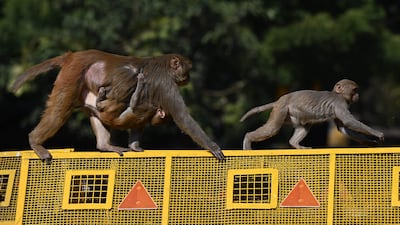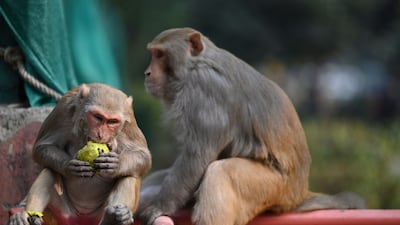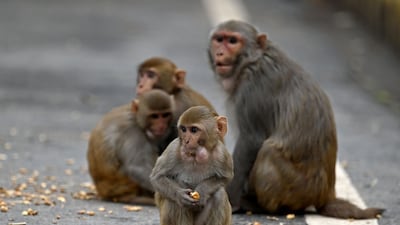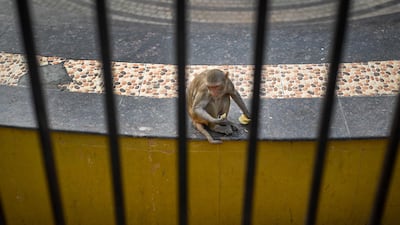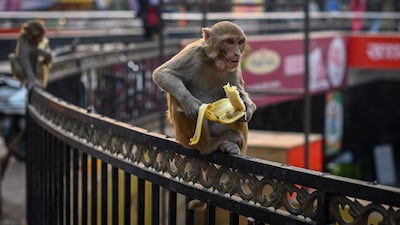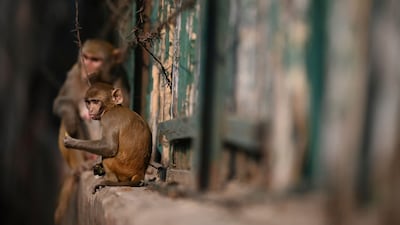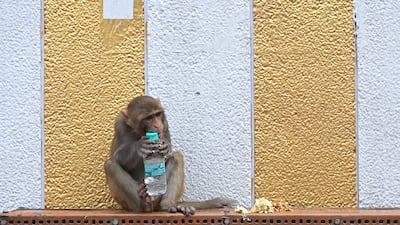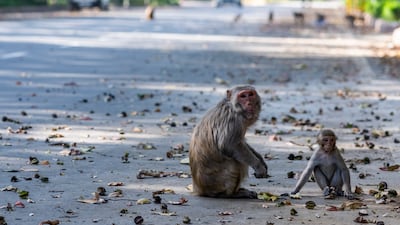With its sprawling homes and government buildings, the high-security Lutyens Bungalow Zone is one of New Delhi's most exclusive enclaves.
For the Supreme Court judges who live there, however, the peace is being shattered by a horde of lawless intruders — rhesus macaques.
Now, India's top court court is advertising for 'monkey scarers' to shoo them away.
On Thursday it invited bids from companies to prevent the macaques invading judges' residences.
“Sealed tenders are invited from the reputed housekeeping agencies for engaging/hiring the services for providing the manpower for Monkey Scarers at the Residential Bungalows of Hon’ble Judges,” the tender notice read.
The services will be required at 30 to 40 bungalows within a three-kilometre radius of the apex court for an initial period of six months.
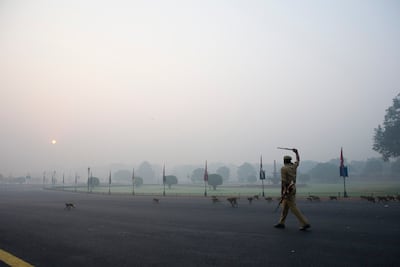
India's capital has a perennial problem of monkeys rampaging across government buildings, residential areas and business centres, terrorising people and attacking property.
The Lutyens zone is the capital’s high-security central district where all important government buildings are located, including the prime minister’s office and residence.
There are no official figures on the number of monkeys in Delhi but experts estimate that tens of thousands live within human settlements — leading to daily conflicts between people and macaques.
Experts say the problem is a result of the rapid shrinking of the monkeys' natural habitat but also say their sacred status in Hinduism is a factor in the huge population.
Most Hindus revere monkeys as descendants of the deity Lord Hanuman and offer them food and protection, aggravating the problem.
The capital reported more than 950 attacks by monkeys in 2018, the most recent government figures available.
Last October, a man aged 30 was killed when monkeys tossed a brick from a residential building that hit his head as he was passing through the lane.
Decades of government efforts to control the primates have failed — including plans to relocate the monkeys to a wildlife park and a sterilisation programme that cost 54 million rupees ($710,000).
Electric fencing, firecrackers and guards armed with slingshots have also been unsuccessful in keeping the animals away.
Residents in the past engaged langurs — bigger, predatory monkeys — to frighten away macaques but now increasingly use humans impersonating langurs to scare them.
In 2014, the Indian Parliament hired 40 people to scare off the macaques by imitating the screeching noises made by langurs.
